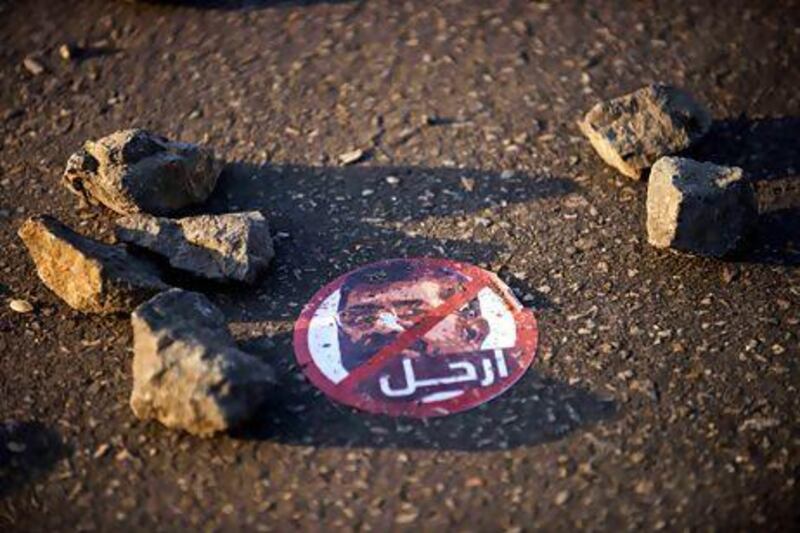The close of trading for the weekend brought some relief to Egypt's markets. But the pressure is expected to be renewed in the week ahead as the embattled president Mohammed Morsi tries to stem protests and a US$4.8 billion rescue package from the IMF approaches a vote next week.
Including the market crash now known as "Black Sunday", the EGX30 index of Egyptian equities has fallen 11 per cent since Mr Morsi issued a decree putting his decisions above judicial review, a move opponents have characterised as dictatorial.
Talks have begun this weekend between the ruling Muslim Brotherhood and opposition parties ahead of a referendum on Egypt's new constitution that is due to take place on Saturday.
The next big test will be a vote by the IMF's board on December 19 on whether to disburse $4.8bn in funding to prop up Egypt's rapidly deteriorating public finances, analysts from Arabia Monitor wrote in a research note.
"Despite recent unrest and heightened political risk, we are of the view that this step will only be impacted if the political transition process is seriously compromised in the short term," read the note.
"Events this week are part of the volatility that we expect as Egypt's political system transitions, and we do not preclude increased headline risk leading up to the mid-December referendum."
Egyptian foreign reserves made their biggest decline in four months during November, according to the central bank of Egypt, while investors feared further political upheaval.
A hike in rates could even be necessary to prop up the Egyptian pound, analysts from Capital Economics wrote in a research report.
The Egyptian pound depreciated to 6.1310 pounds per dollar, rebounding slightly after reaching the weakest point since 2004.
"Egypt's deepening political crisis has put paid to any hopes of policy easing, in the very near term at least," said the note. "Indeed, if things stay as they are, we wouldn't be surprised if the central bank is forced into hiking rates to support the pound."
The UAE's markets could also face some headwinds, having lagged gains for emerging market equities in the past week.
Three Dubai banks downgraded over the weekend could see share price movements when trading reopens.
Emirates NBD, Commercial Bank of Dubai and Mashreq were each cut by one notch by Moody's Investors Service, the ratings agency, while Dubai Islamic Bank was placed on watch for a potential downgrade to come. All four banks retain an "investment grade" credit rating.
Last week, the Dubai Financial Market General Index advanced 0.1 per cent to 1,609.63, hovering just below the 20 per cent threshold needed to enter a bull market for the year, while the Abu Dhabi Securities Exchange General Index was flat at 2,674.21.
With only three full days of trading, volumes were dismal on both emirates' exchanges, with Dubai's market reaching its lowest trading levels in four weeks despite a burst of enthusiasm for emerging market stocks. The MSCI Emerging Market index rose 1.6 per cent over the same week.
For the week ahead, international politics are likely to be the biggest driver for Arabian Gulf equities, said Aziz Unan, a portfolio manager at Renaissance Asset Managers.
"For the next three weeks or so, the biggest issue is still the US fiscal cliff.
"The market seems to have priced in the fact that sooner or later there will be a compromise and agreement," he said. "But we only have two weeks left before Christmas, and if we can't get an agreement fairly soon that may increase the nervousness of the market."
The "fiscal cliff" is a mix of automatic tax increases and spending cuts that will take effect at the start of next year unless the US congress reaches a deal.
The IMF said in October that the full effect of all of the measures coming into effect would knock 4.6 per cent from GDP in the world's largest economy next year.






